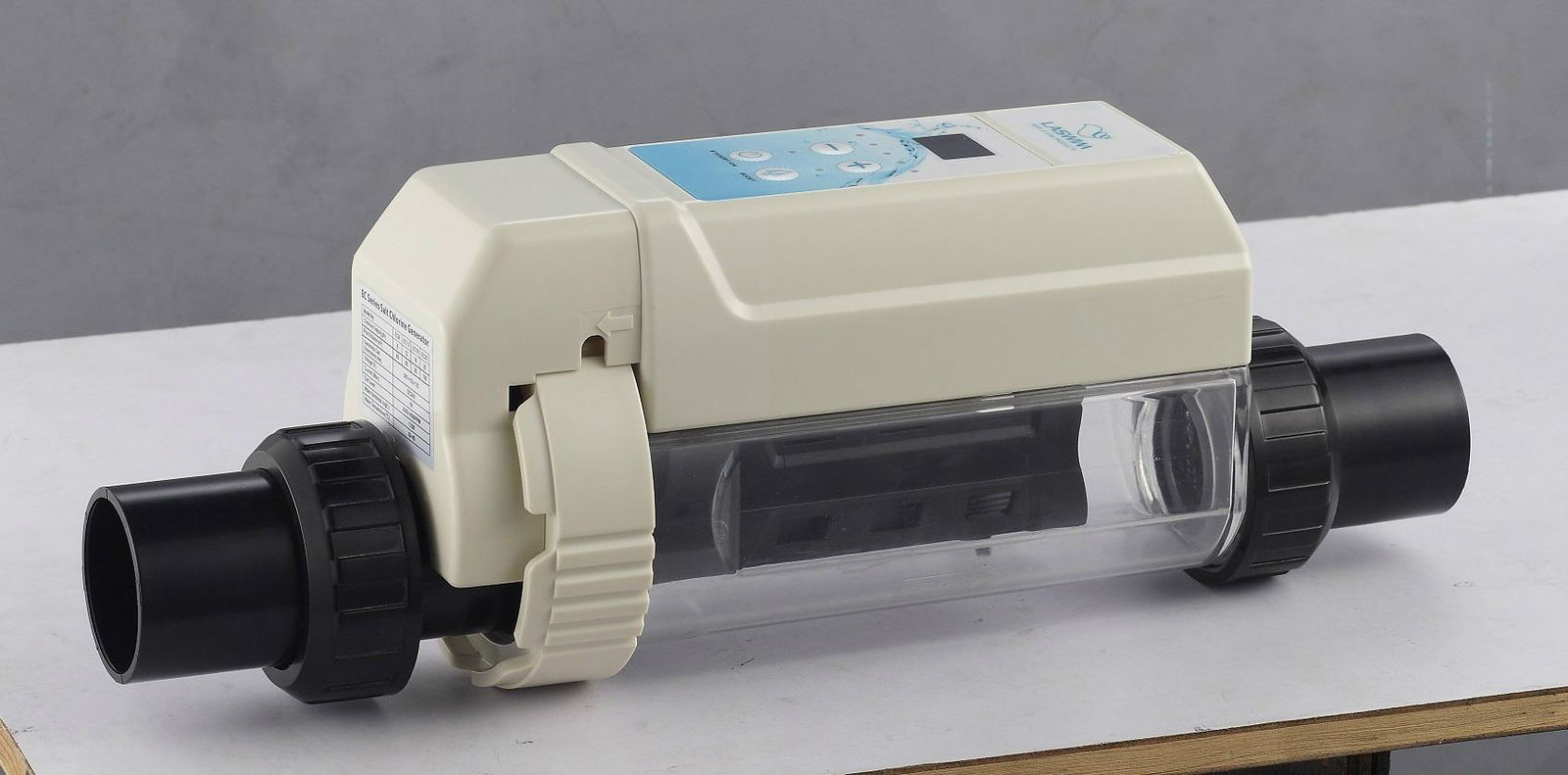Advantages of Salt Chlorine Generators

Salt Chlorine Generators: Advantages and Disadvantages
Salt chlorine generators are widely used systems for disinfecting pool water. These systems convert saltwater into chlorine gas to keep the pool clean and hygienic. However, this technology has both advantages and some disadvantages.
Disadvantages of Salt Chlorine Generators
Chlorine-Related Drawbacks
Salt chlorine generators produce chlorine, so they inherit its disadvantages:
- Skin and Eye Irritation: Chlorine can cause irritation to the skin and eyes.
- Allergic Reactions: Some individuals may experience allergic reactions to chlorine.
- Long-Term Exposure: Prolonged exposure to chlorine may lead to discomfort for some users.
Environmental Factors
The sterilization efficiency of salt chlorine generators is significantly affected by environmental conditions:
- Sunlight and Temperature: High temperatures and direct sunlight can reduce chlorine efficiency.
- Phosphate Levels: High phosphate levels can promote algae growth.
- Bather Load: Heavy usage can impact water quality and necessitate additional chemical treatments.
These factors may increase the need for shock treatments to maintain water quality.
Soil Sterilization and Plant Damage
Saltwater discharged during backwashing can:
- Sterilize surrounding soil, disrupting its natural balance.
- Lead to the death of nearby plants.
Structural Damage
Salt can cause significant damage to pool structures and equipment:
- Metal Components: The electrolysis process can accelerate corrosion in metal parts such as heaters, ladders, and railings.
- Stone and Concrete: Saltwater can compromise the durability of stone and concrete structures.
Requirement for Corrosion-Resistant Materials
Salt chlorine generators must be compatible with corrosion-resistant materials. The production of hypochlorous acid and caustic soda can harm metals and other materials, making this requirement essential.
Comparison with Ozone Systems
Ozone systems provide an alternative for water disinfection:
- Advantages: Effective in closed-loop systems and bottled water processing.
- Disadvantages: Ozone loses effectiveness quickly in large-surface areas like pools, reverting to oxygen and becoming inactive.
Advantages of Salt Chlorine Generators
Chlorine Production
- Converts added salt (sodium chloride) in pool water into chlorine gas (Cl₂) and sodium hydroxide (NaOH) through electrolysis, effectively disinfecting the water.
Continuous Disinfection
- Automatic Chlorination: Ensures continuous water disinfection without the need for manual intervention.
- Stable Water Quality: Automatically regulates chlorine levels, maintaining clean water.
Lower Chlorine Levels
- Reduced Irritation: Provides lower chlorine levels compared to traditional methods, resulting in less irritation to skin and eyes.
- Minimal Chlorine Odor: Reduces the strong chlorine smell commonly associated with pools.
Ease of Use
- Requires minimal maintenance beyond adding salt and adjusting generator settings, making it user-friendly and practical.
Softer Water Feel
- Pools cleaned with salt chlorine generators offer a softer water feel, which is especially beneficial for individuals with sensitive skin.
Caustic Soda Production
- During electrolysis, sodium hydroxide (NaOH) is produced, helping to balance the pool's pH levels. Regular pH monitoring and adjustments are still essential.
Conclusion
Salt chlorine generators offer an effective and convenient solution for pool disinfection. Their advantages, such as ease of use and softer water, make them a popular choice. However, their disadvantages, including structural and environmental impacts, should be carefully considered. A well-maintained system with the right materials can ensure long-term, efficient, and healthy pool maintenance.
